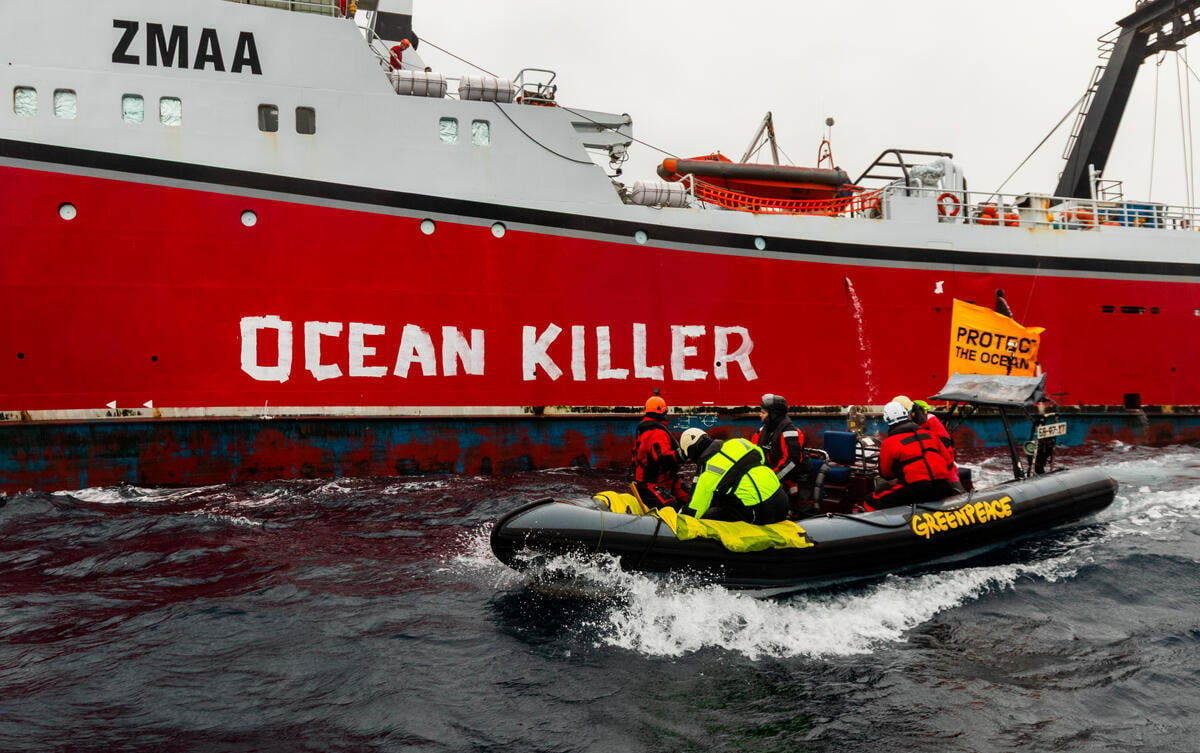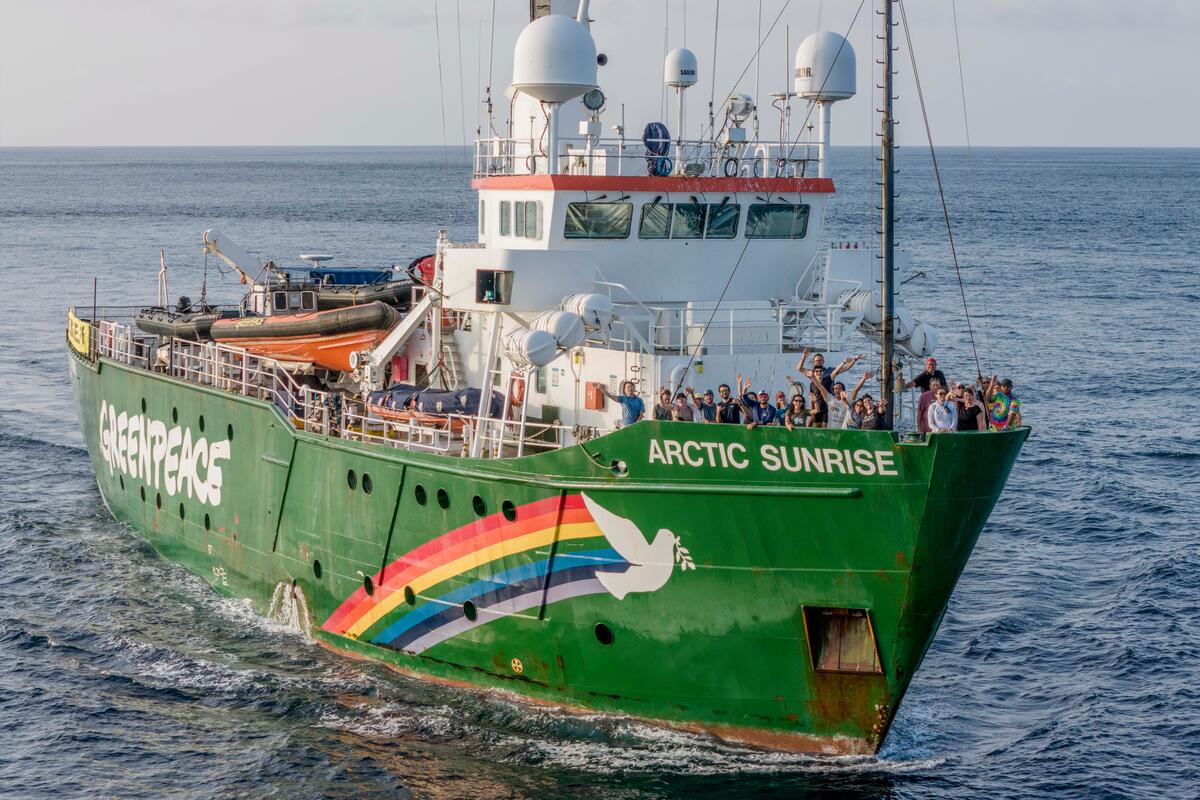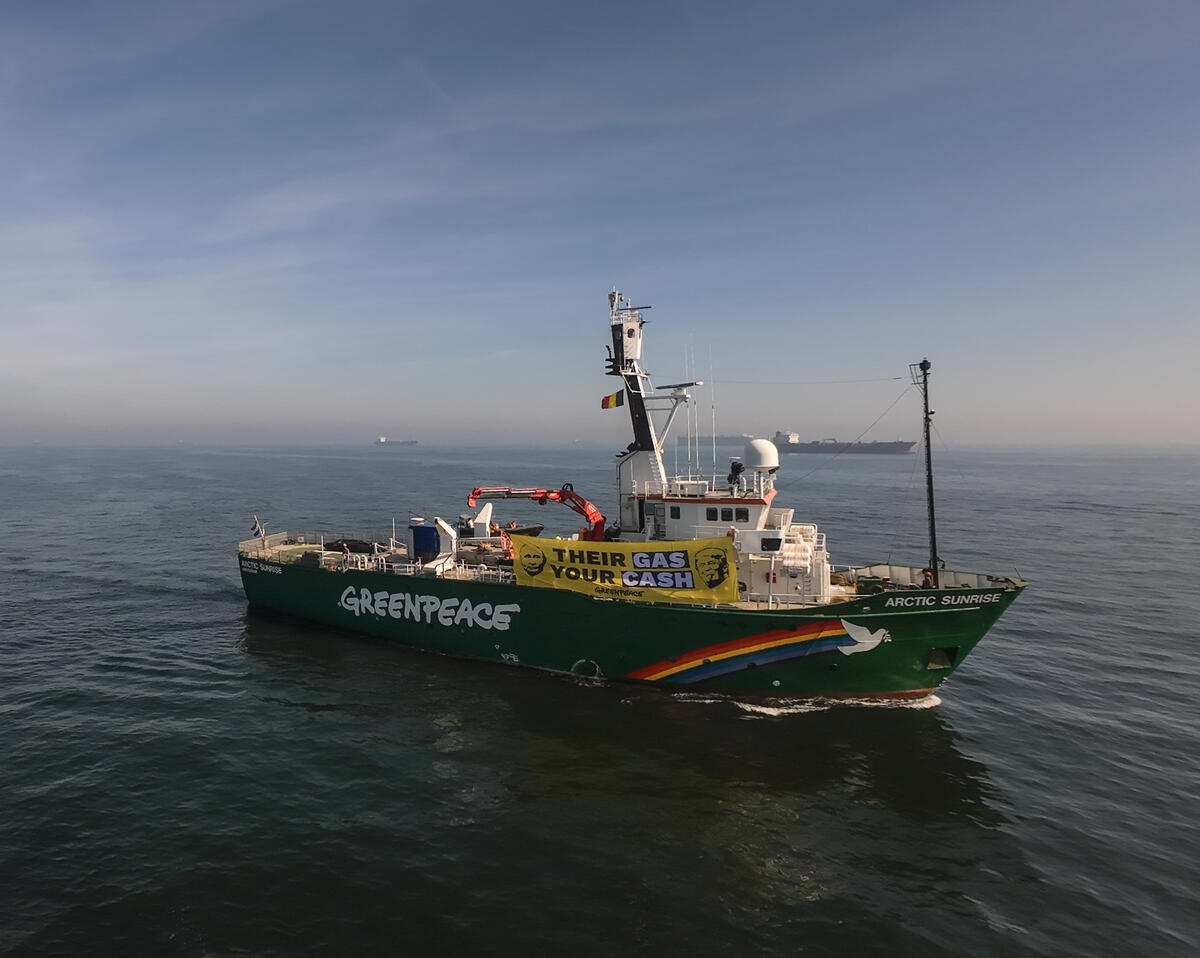London, England – Fishing pressure on the Indian Ocean high seas is threatening ocean health, coastal livelihoods and iconic species, with governments failing to act, a new Greenpeace International report shows. [1] The new investigation in the north western Indian Ocean reveals:
- Large-scale driftnets, described as “walls of death” and banned by the United Nations 30 years ago, continue to be used extensively, leading to the decimation of marine life in the region. Shark populations in the Indian Ocean have collapsed by almost 85% in the last 50 years. Greenpeace UK witnessed the use of gillnets, with seven boats creating two walls of nets over 21 miles long, and documented bycatch of endangered species like devil rays.
- A rapidly expanding squid fishery with over 100 vessels operating in the area without international regulation.
- Fisheries are being grossly mismanaged by weak institutions and political decisions – including most recently at the Indian Ocean Tuna Commission, where the influence of European industry resulted in the meeting’s failure to agree on any measures to tackle overfishing.
Will McCallum, from Greenpeace UK’s Protect the Oceans campaign, said:
“These devastating scenes are just a glimpse of our lawless oceans, we know that there are many other fishing fleets operating in the shadows of legislation. By driving down ambition to serve the interests of industrial fishing companies, the European Union is complicit in heaping pressure on this fragile ecosystem and profiting from the lack of oversight over the global oceans. We can’t allow the fishing industry to continue business as usual, we need to get this right for the billions of people who rely on healthy oceans to survive.”
Well-managed fisheries are critical to the food security of coastal communities around the world, particularly in the Global South. Populations around the Indian Ocean represent 30% of humankind and the ocean provides three billion people with their main source of protein. [2]
The report also reveals how destructive fishing practices, notably Fish Aggregating Devices deployed by European-owned fleets, are changing the habitats of the western Indian Ocean at an unprecedented scale, where around one-third of the assessed fish populations are overfished. The Indian Ocean accounts for approximately 21% of the world tuna catch, making it the second-largest region for tuna fishing. [3]
Regional fisheries management organisations are not capable of acting decisively to protect marine life, instead allowing a handful of governments supporting narrow corporate interests to exploit ocean resources, the report shows.
“World leaders have the chance to transform the fate of the high seas by agreeing a strong Global Ocean Treaty at the United Nations”, said McCallum. “This landmark treaty can create tools to turn back the clock on ocean destruction and resuscitate marine ecosystems, protecting invaluable species and sustaining coastal communities for generations to come.”
ENDS
Photo & video available here.
Notes to editors:
[1] The report High Stakes: The environmental and social impacts of destructive fishing on the high seas of the Indian Ocean can be downloaded here.
[2] FAO (2014). High Level Panel of Experts on World Food Security. Sustainable fisheries and aquaculture for food security and nutrition.
[3] 18 ISSF (2020). Status of the World Fisheries for Tuna: November 2020. In ISSF Technical Report 2020-16.
[4] Will McCallum is Head of Oceans for Greenpeace UK
Contacts:
Julia Zanolli, Global Media Lead for the Protect the Oceans campaign, Greenpeace UK: [email protected], +44 7971 769107
Greenpeace International Press Desk: [email protected], +31 (0) 20 718 2470 (available 24 hours)
Follow @greenpeacepress on Twitter for our latest international press releases



